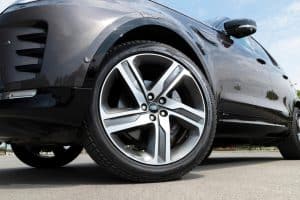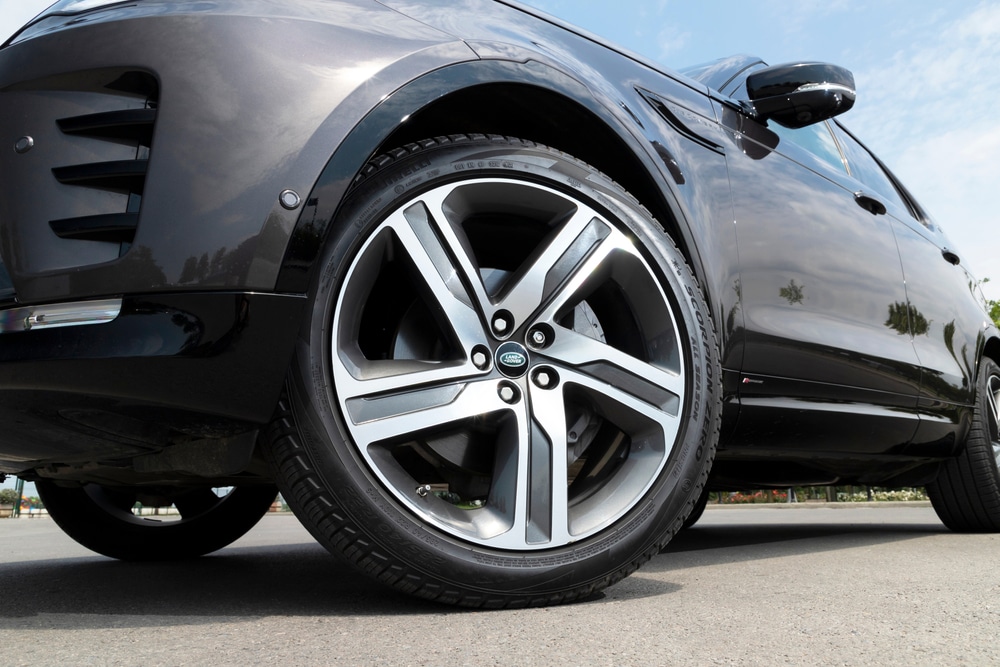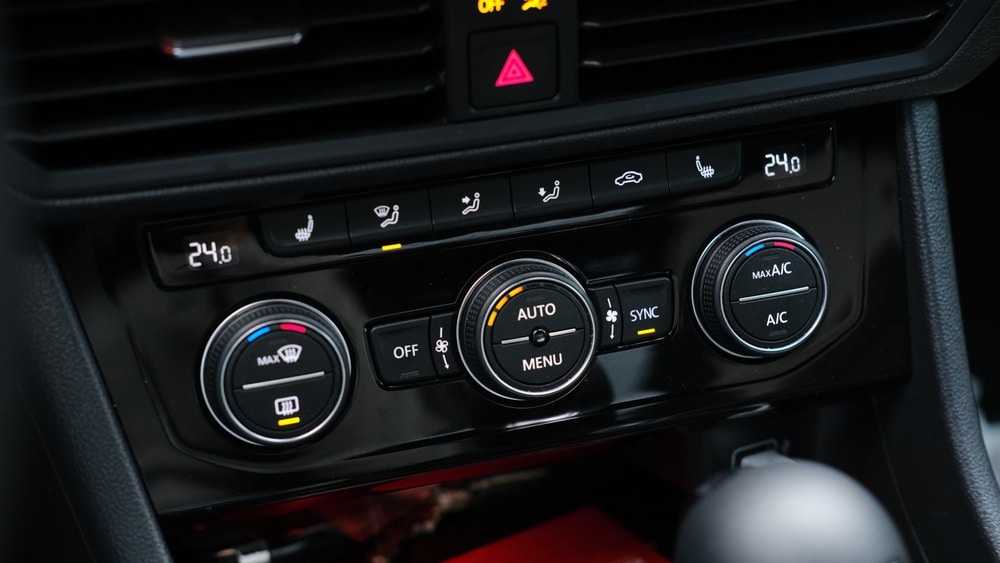How to Keep Your Vehicle Safe and Reliable
Brakes are one of the most important safety features on any vehicle, and this is especially true for a Land Rover. These SUVs are known for their powerful engines and impressive off-road capabilities, but all of that power and performance means nothing if your brakes aren’t working properly.
Unfortunately, braking issues are a common problem on Land Rovers, and they can be incredibly dangerous if left unaddressed. In this blog post, we’ll take a closer look at the dangers of faulty brakes on a Land Rover and discuss some tips and tricks for extending the life of your brake system. From the importance of regular maintenance to warning signs of potential problems, we’ll cover everything you need to know to keep your Land Rover’s brakes in top condition and ensure your safety on the road.

The Importance of Good Brakes
The consequences of faulty brakes on a Land Rover or any vehicle can be serious and potentially life-threatening. If your brakes are not working properly, your vehicle may not be able to stop effectively, increasing the risk of a collision or accident. If the brake system fails while your Land Rover is in motion, you may lose control of the vehicle, increasing the risk of injury to the occupants of the vehicle and others on the road.
At South Coast Garage your safety is our top priority so it’s not surprising that your Land Rover’s braking performance is high on our list – particularly when you consider that it is estimated that brake issues are responsible for nearly 25% of all road traffic accidents in the UK.
So, before we look at how to maintain your brakes and extend their life, let’s first take a look at how the braking system on a Land Rover works.
How the braking system works on your Land Rover
The brake system on a modern Land Rover typically uses a combination of hydraulic and electronic systems to slow and stop the vehicle.
The main components of the brake system include the brake pedal, brake master cylinder, brake callipers, and brake pads or shoes.
When the driver presses the brake pedal, it pushes a piston in the brake master cylinder, which then pushes brake fluid through the brake lines to the brake callipers. The brake callipers contain pistons that press against the brake pads or shoes, which in turn press against the rotors or drums to slow or stop the vehicle.
Some Land Rover models also have an Anti-lock Braking System (ABS) which prevents the wheels from locking up during braking, allowing the driver to maintain steering control.
Additionally, some models may have Electronic Brakeforce Distribution (EBD) which adjusts the brake force to each wheel based on the vehicle’s load distribution, and Electronic Stability Control (ESC) which uses sensors to detect and correct any skidding or loss of control.
Maintaining your Land Rover’s brakes
The combination of hydraulic, electrical and mechanical components in a Land Rover’s braking system means that there are several parts that can become faulty and require regular maintenance. At South Coast Garage some of the most common parts we see that may need attention include:
- Brake pads or shoes: These are the friction material that presses against the rotors or drums to slow or stop the vehicle. They can wear down over time and need to be replaced.
- Rotors or drums: These are the metal discs or drums that the brake pads or shoes press against to slow or stop the vehicle. They can become worn or damaged, and may need to be resurfaced or replaced.
- Brake callipers: These are the components that hold the brake pads or shoes in place and press them against the rotors or drums. They can become seized or leak brake fluid, which can cause the brake pedal to feel soft or the brakes to not work properly.
- Brake lines and hoses: These are the parts that carry brake fluid from the master cylinder to the callipers. They can become corroded or damaged, which can cause leaks or a loss of brake pressure.
- Brake fluid: Over time, brake fluid can absorb moisture, which can lower its boiling point and reduce its effectiveness. It should be checked and replaced according to the manufacturer’s recommendations.
- ABS module and sensors: ABS system uses sensors to detect when a wheel is about to lock up during braking and reduce brake pressure to that wheel. These sensors can fail and the module can malfunction, requiring replacement.
Regular maintenance and inspections of the brake system, including the brake pads, drums, callipers, brake lines and hoses, brake fluid and ABS system, can help prevent problems and ensure that the brakes are working properly.
Brake Health: Things to look out for
There are several signs that you can look out for. These include:
- Squeaking, grinding or growling noise while braking: This can indicate that the brake pads or shoes are worn and need to be replaced.
- Soft or spongy brake pedal: This can indicate that there is air in the brake lines, or that the brake fluid is low.
- Pulling to one side while braking: This can indicate that the brake callipers on one side of the vehicle are not working properly, or that the brake pads or shoes are worn unevenly.
- Warning lights on the dashboard: Some Land Rover models have warning lights on the dashboard that will come on if there is a problem with the brake system, such as low brake fluid or a malfunctioning ABS system.
- Vibration or pulsation while braking: This can indicate that the rotors or drums are warped or damaged, and may need to be resurfaced or replaced.
- Leaking brake fluid: This can indicate a problem with the brake lines or hoses, and can result in a loss of brake pressure.
It is important to pay attention to any unusual noises or changes in the way the vehicle feels while driving, and to have the brake system inspected by a professional mechanic if you suspect any problems. Regular maintenance and inspections can help prevent problems and ensure that the brakes are working properly.
How to extend the life of your Land Rover brakes
Brake repairs can be expensive, and replacing worn or damaged brake components can be costly. By extending the life of your brakes you can avoid costly repairs and prolong the life of your brake components.
So, let’s take a look at our top tips for extending the life of your Land Rover brakes:
- Regular maintenance: Having regular brake inspections and maintenance, such as replacing worn brake pads or shoes and resurfacing or replacing worn rotors or drums, can help prevent problems and extend the life of the brakes.
- Drive responsibly: Avoid heavy braking and high speeds, as well as sudden stops, this can help reduce wear on the brakes and extend their life.
- Avoid overloading: Avoid carrying heavy loads or towing trailers as this can increase the wear and tear on the brakes.
- Avoid high temperatures: Avoid prolonged use of the brakes in high temperatures, such as in heavy traffic or on long downhill gradients. This can cause brake fade, and reduce the effectiveness of the brakes.
- Check brake fluid: Check the brake fluid level and condition, and replace it as needed. Moisture in the brake fluid can reduce its boiling point, which can cause the brakes to fade or fail.
- Check brake system and brake pads: Check the brake system for any leaks, and the brake pads for wear. Replace any worn or damaged parts as needed.
By following these tips, you can help extend the life of the brakes on your Land Rover, and ensure that they are always in good working condition.
When it comes to maintaining and repairing the brakes on your Land Rover, it’s important to choose an independent specialist garage like South Coast Garage. Here’s why:
- Expertise: At South Coast Garage, our technicians are experts in Land Rovers and have the knowledge, experience and equipment to properly diagnose and repair any issues with your vehicle’s braking system.
- Cost-effective: South Coast Garage offer more cost-effective repairs and maintenance services than Lewes Land Rover and Brighton Land Rover.
- Personalised service: At South Coast Garage, we understand the importance of your Land Rover to you. We provide personalised service, ensuring that your vehicle is in good hands.
- Prioritise safety: Safety is always our top priority at South Coast Garage, and we understand that properly functioning brakes are essential for the safety of yourself and your passengers, as well as other drivers on the road.
- Quality parts: South Coast Garage only uses genuine or high-quality equivalent parts that are designed to meet or exceed the manufacturer’s specifications, which can help to extend the life of your brakes and improve their performance.
By choosing South Coast Garage, you can be confident that your Land Rover’s brakes will be properly maintained and repaired, helping to ensure your safety and prolong the life of your vehicle.
Call South Coast Garage, your local independent Land Rover garage, today.
Call Now 01323 301038Save On Land Rover Servicing



